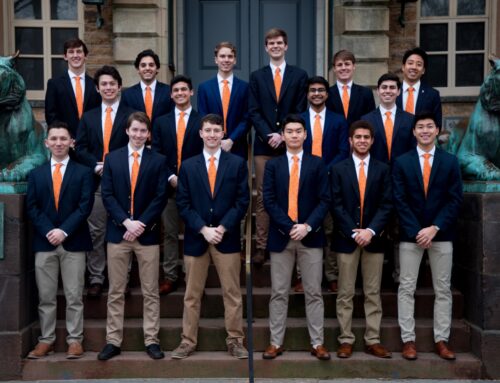If you have always dreamed of having your son or daughter graduate from an Ivy League college — which, to define the term, are the eight schools that make up the Ivy League and including: Harvard, Princeton, Yale (the “Big Three”), as well as Brown, Dartmouth, Cornell, Columbia, and the University of Pennsylvania — there are many thing you can do that will help your teen succeed in the Ivy League college admissions and college application process. Here are the steps of How To Prepare Kids For An Ivy League College:
#1. Make sure they take as many AP courses as possible: College admissions officers, especially Ivy League college admissions officers want to see that your student is not only challenging themselves by taking the most challenging courses possible at their particular school, but they want to see that they are ALREADY fully immersed in college-level classes, before they even get to college. So, if your student’s high school DOESN’T offer any AP course work, make sure they get it somewhere else (like enrolling in a community college at night).
This shows that they will be able to handle the work-load once they get in to a highly competitive school. It shows they have the intellect and can take the pressure, and that kind of proof is what makes admissions officers happy, and lets your high school student actually pass the test and get in!
#2: Make sure they have extracurricular activities that are interesting and different: By different, this means something more unique than piano, violin, or swimming. Oh no! What if you’re saying, “but my kid is taking piano, violin and swimming!”
These activities are fine if they’re either a musical prodigy, or an Olympic medalist, but in case they’re not, try. Just try…to branch out and have the, expand into other activities that will make them stand out more than their friends and become even more unique to college admissions officers – again, especially Ivy League college admissions officers.
Schools like to diversify their class, and they like students who have done, or are doing, incredibly interesting things. So, branch out. Do something different – on top of the regular “smart kid” activities like classical music or Model UN. You don’t want to just do what every other smart kid does: ESPECIALLY for the Ivy League!
#3: Let them choose their own, real interests: Don’t push your kid to go into Engineering or Finance as a potential major in college if they’re sincerely telling you they want to study Greek, or eventually get a Ph.D in Microbiology. The college admissions officers want to know what REALLY interests your student, again, especially for the Ivy League. Or with the only purpose of setting your student up for a (perceived) well-paying job.
The Ivy League schools in particular like to admit students who want to study something DIFFERENT. Remember, they employ a lot of professors, and they need to fill the Greek classes, too. The Ivy League colleges often admit students who have a WIDE VARIETY OF INTERESTS, especially in the humanities.
These are also the students who might later go on to law school. Or medical school, enter a policy program in foreign relations, and/or get their Ph.D.
The Ivy League colleges in particular like students who appreciate the value of a broad education. One that will leave them post-graduation with a full and solid understanding of today’s world. In other worlds, the Ivy League colleges are more interested in graduating people who will always be “well-educated” by anyone’s standards. And that means being able to speak on a wide variety of interests and topics at some depth.
What they are NOT interested in, are people who are simply looking at college as a way to get a job. They try to weed those “non-intellectuals” the “non-scholars” out. Those students are one of the more highly competitive science or engineering schools like MIT.
In summary, Ivy League colleges are for students who appreciate learning…about everything. They are students who have a passion for new things and intellectual topics.
If you can encourage THAT mindset, your child has a chance to get in. Strong essays, high grades, good SAT scores, glowing teacher recommendations, and a nice interview all help complete the admissions package. But instilling in your student a desire to learn, about everything and anything as they go forth. That’s what Ivy League admissions officers look for the most, and THAT will help them get in!
[I’m a former Harvard admissions interviewer and a Harvard graduate, and currently run the Ivy League college admissions consulting firm: IVY COLLEGE ESSAY.com Contact me for a free consultation today, and get into the Ivy League! IvyLeagueEssayInfo@gmail.com ]







